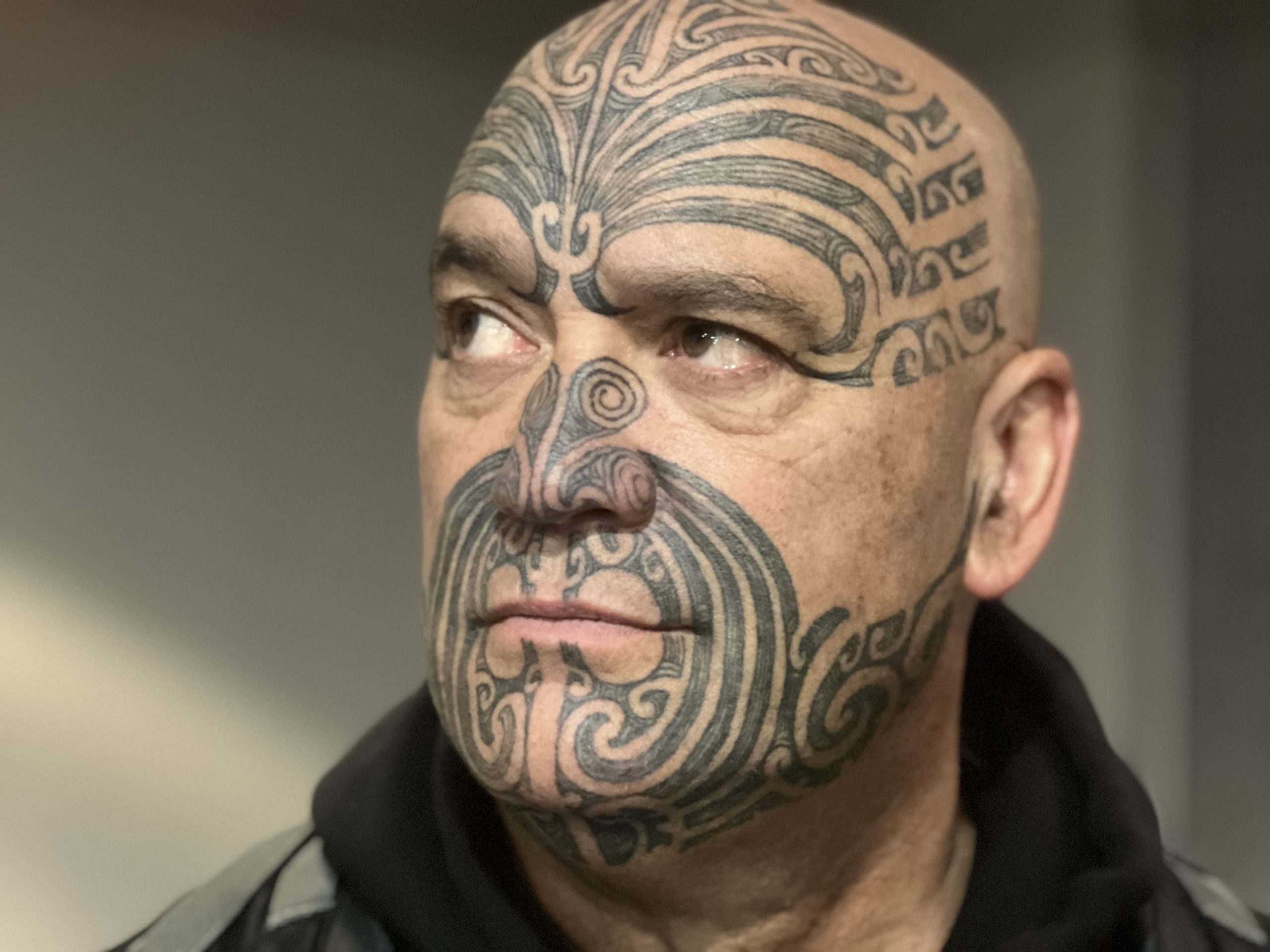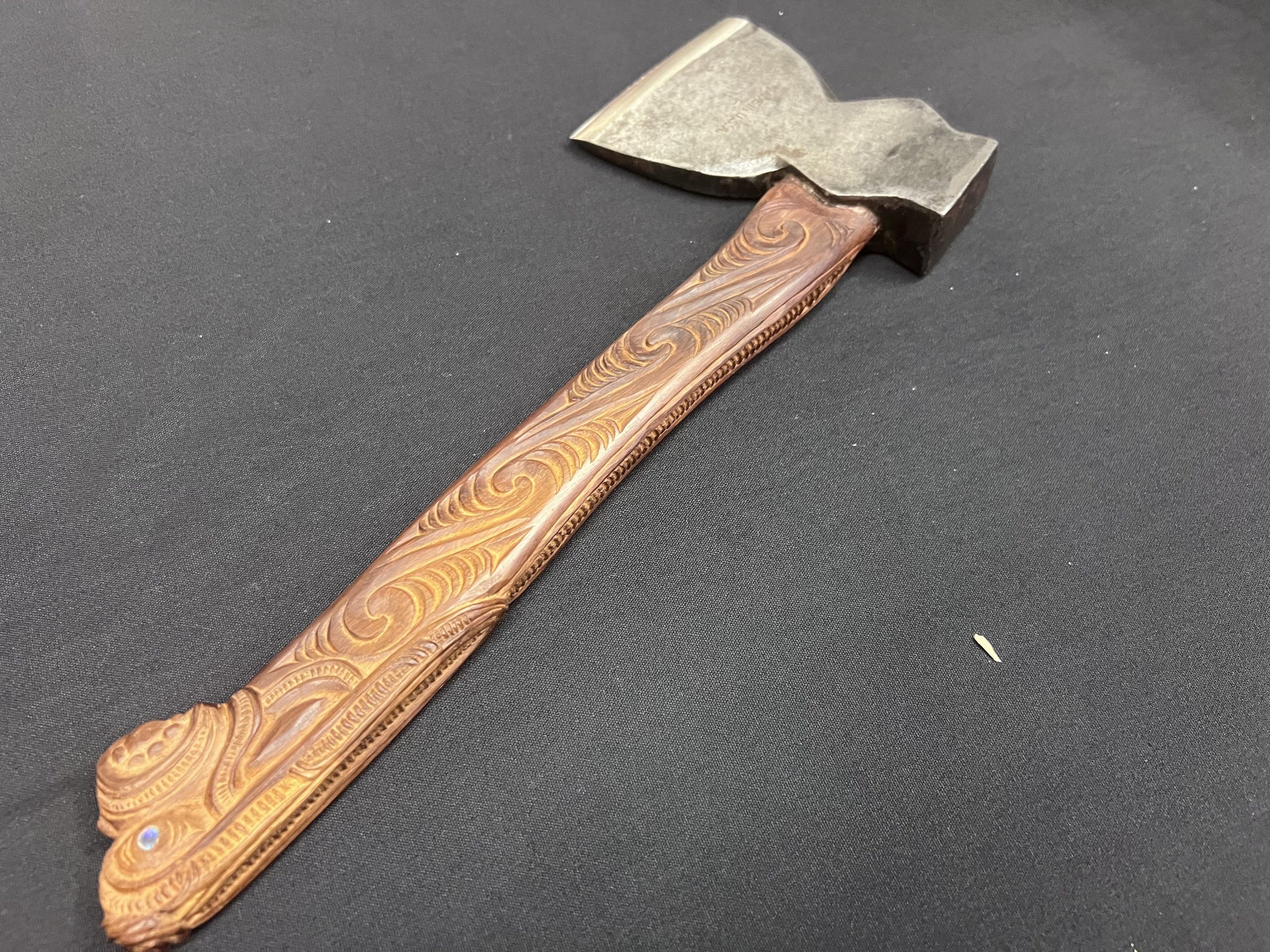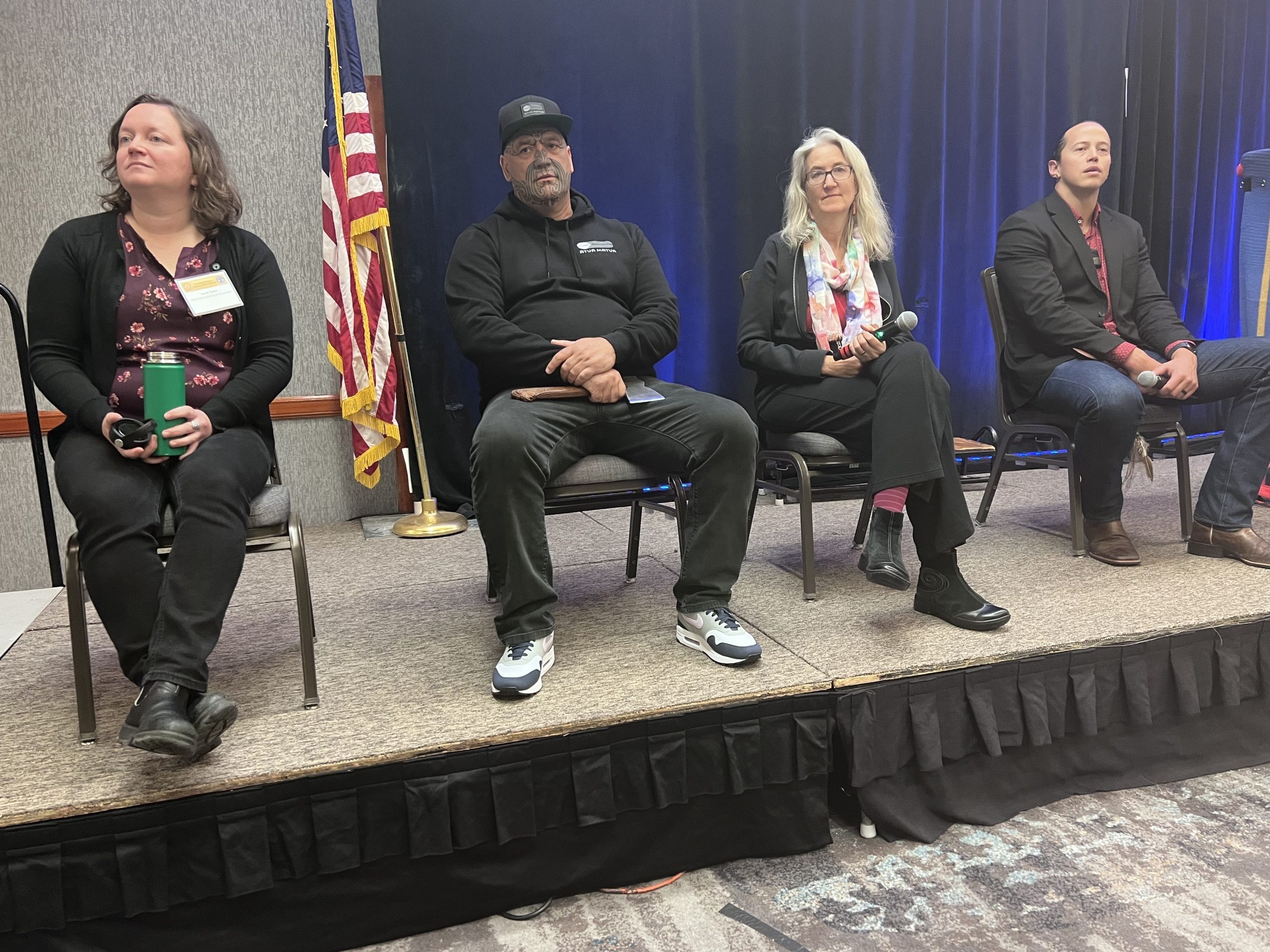Podcast: Play in new window | Download | Embed

Native vote advocates in Montana are pushing back against efforts to eliminate ballot collection on tribal lands.
Many members of the state’s seven tribes live hours from the nearest polling place.

Western Native Voice’s field team on the road in May 2024 getting people registered to vote. (Courtesy Western Native Voice / Facebook)
Mark Moran reports.
The Montana Supreme Court has ruled two laws make it prohibitive for people living on reservations to reach a polling place or mail an absentee ballot before Election Day.
The state is now asking the U.S. Supreme Court to review that ruling.
Executive Director Ronnie Jo Horse says Western Native Voice collects ballots from tribal residents who face transportation and other hurdles that keep them from getting to a physical polling place and adds that service was very important during the pandemic.
“You know, we had a novel virus going around. A lot of people were afraid to leave their houses because Native Americans had a really high mortality rate than any other group in America. ”
The bills ended Election Day voter registration and third-party ballot collection services in Montana. But the state’s high court ruled them unconstitutional and stopped them from taking effect.
 The Office of Army Cemeteries has completed its disinterment project over the past month of the remains of students who died at the Carlisle Indian Industrial School in Pennsylvania.
The Office of Army Cemeteries has completed its disinterment project over the past month of the remains of students who died at the Carlisle Indian Industrial School in Pennsylvania.
The Army released its findings Wednesday on the remains of nine children, the Associated Press reports.
They were returned to tribes in South Dakota, Montana, Oklahoma, and Wyoming.
The findings did not include one other tribe, which had remains returned because the tribe asked to be anonymous.

Dr. Ihi Heke said he did not pick the design for his tattoos. Instead, they were chosen by a Māori artist to represent his calling in life. Heke says the design represents light coming from his jaws. (Photo: Rhonda McBride)
New Zealand may be on the other side of the globe from Alaska, but their Indigenous peoples have a lot in common.
Dr. Iki Heke says both have a long history of “talking and listening” to the land, knowledge that can help the world adapt to climate change.
As Rhonda McBride from our flagship station KNBA tells us, this was Heke’s message when he was in Alaska recently for a national Indigenous conference on climate.
Dr. Iki Heke has a face you won’t forget, covered with traditional Maori tattoos.
He’s the picture of a mountaineer, who commands the stage as he stands firmly with an axe in hand, as if to defend his culture’s ancient tradition of talking to the land.
“When I talk to a group like this today, in their blood they remember this.”

Dr. Ihi Heke’s toki, the Māori word for axe. He uses the carved handle as a mnemonic device. When he hears something he wants to remember, he positions his finger on a certain place on the axe. Later, when his finger returns to this spot, the memory comes back. Heke says it’s an ancient form of a computer. (Photo: Rhonda McBride)
Dr. Heke was raised in mountains near Queensland, on the southern part of New Zealand.
Today, he takes students and visitors on hikes to teach them how to talk to the mountains.
“And the mountain asks them questions. Who are you? Where have you been? What are you doing on me?”
Heke takes them almost to the top of the mountain, and then stops 100 feet from the summit.
“I say you don’t need to go to the top. He says the object is not to conquer the mountain but to communicate with it. This fellow is going to be here when you’re gone. You can make it to 80, but this man’s going to carry on. And it’s arrogant for you to think that you conquered a mountain.”

Dr. Ihi Heke, second from the right, was a presenter at the National Tribal and Indigenous Climate Conference, held this month in Anchorage, Alaska. He carried his axe with him everywhere he went. He says he uses it to capture memories. (Photo: Rhonda McBride)
Heke says when he hunts, hikes, or snowboards on mountains; it’s as if he’s in conversation with some old friends.
“And when I say that, it’s because, when I go into that mountain, they’ve usually worked me over. You know, I come out of there ruined. But after a day or so in recovery, I think it was the mountain that caused that. I thank them for it because they’ve given me opportunities to grow.”
Whether they lived near mountains or along the ocean, Heke believes all Indigenous peoples once knew how to talk with the land, because it’s how they survived.
Heke says these conversations taught Indigenous people to always put the land first, but after contact with Western culture, that changed.
“We’ve got a saying at home, Toitū te whenua. Land is forever. People are temporary. We come through and we leave, but you want to make sure you’re going to leave it in a state that all your kids are going to be able to survive, and their kids will survive. We have to move back into a way of knowing our water and our land that can sustain it. We all used to practice this as Indigenous people.”
Dr. Heke teaches courses at universities all over the world, based on what he calls Attua Matua. Attua means Maori environmental knowledge and Mattua means connection to the environment.
Heke says Indigenous people need to walk backwards to the future to regain their ancestral knowledge, and then share it everywhere.
Get National Native News delivered to your inbox daily and stay up-to-date on the 2024 Native Vote. Sign up for our daily newsletter today.



